
This project takes a few simple materials and turns them into a stunning space scene, while providing numerous learning opportunities for the whole family. The diorama isn't intended to provide any kind of correct scale in terms of the sizes of the planets or the distances between them, although we still chose different-sized polystyrene balls to give an overall impression of their relative sizes. You can use any size of balls for your planets, but make sure that they'll all fit in your box. We hung our planets in the correct order, but at different heights and depths - be as creative as you like. In ours, Saturn is hanging at an angle, although this was purely to save space!
Craft your cosmos
Before painting the box, remove or cover any shiny tape. We also lined the base of the box with a sheet of heavy-duty brown paper. This covered the flaps and gave a smoother back to our diorama. Painting the background is a fun, creative process that allows you to make a space scene in whatever style you like. We included nebula clouds, galaxies and stars, but you can use different colours, add comets, or even some fairy lights!
This story is from the {{IssueName}} edition of {{MagazineName}}.
Start your 7-day Magzter GOLD free trial to access thousands of curated premium stories, and 9,000+ magazines and newspapers.
Already a subscriber ? Sign In
This story is from the {{IssueName}} edition of {{MagazineName}}.
Start your 7-day Magzter GOLD free trial to access thousands of curated premium stories, and 9,000+ magazines and newspapers.
Already a subscriber? Sign In

Could We Find Aliens by Looking for Their Solar Panels?- Designed to reflect ultraviolet and infrared, the panels have a unique fingerprint
Researchers searching for life beyond Earth spend a lot of time thinking about what telltale signs might be detectable astronomically. Forms of unambiguous evidence for the presence of life on another world are known as biosignatures. By extension, techno signatures are indicators of activity by intelligent, civilisation-building life.

Antimatter- In our continuing series, Govert Schilling looks at antimatter, the strange counterpart to most of the matter filling our Universe
Particles and corresponding antiparticles are very much alike, except they have opposite electrical charges. For instance, the antiparticle of the electron - known as the positron - has the same tiny mass, but while electrons carry a negative electrical charge, positrons are positively charged.
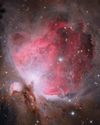
Where Have All The Milky Way's Early Stars Gone?- Our Galaxy has a curious lack of pristine stars
The Big Bang produced a Universe filled almost exclusively with hydrogen and helium; all other elements - what astronomers call metals - were produced by stars, supernovae and everything that happens later. So if you can pick out a pristine star with no metals polluting it from among the billions in the Milky Way, then you are likely to have a star dating from our Galaxy's earliest days.
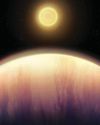
Inside The Sky At Night - Two years ago, exoplanet scientist Hannah Wakeford received some of the first data from the JWST
Two years ago, exoplanet scientist Hannah Wakeford received some of the first data from the JWST. In July's Sky at Night, we discovered what she's learned since then.
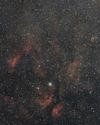
How to stack DSLR data in Siril
Easily combine multiple frames to boost detailin your astro photos
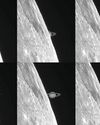
Lunar occultation of Saturn
You'll need to strike a balance on 21 August to capture the Moon covering the ringed planet
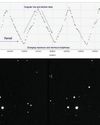
How to plot a variable star light curve
A rewarding project to chart stars that change brightness
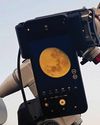
Smartphone photography with a telescope
Mary Mcintyre explains how to get impressive night-sky images using your phone
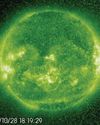
Once-a-century solar storm is overdue
If a Carrington Event struck today it would be catastrophic, says Minna Palmroth

The new era of human spaceflight
There's been a step-change in crewed space missions since the dawn of the 21st century. Ben Evans charts its course and looks ahead to future horizons